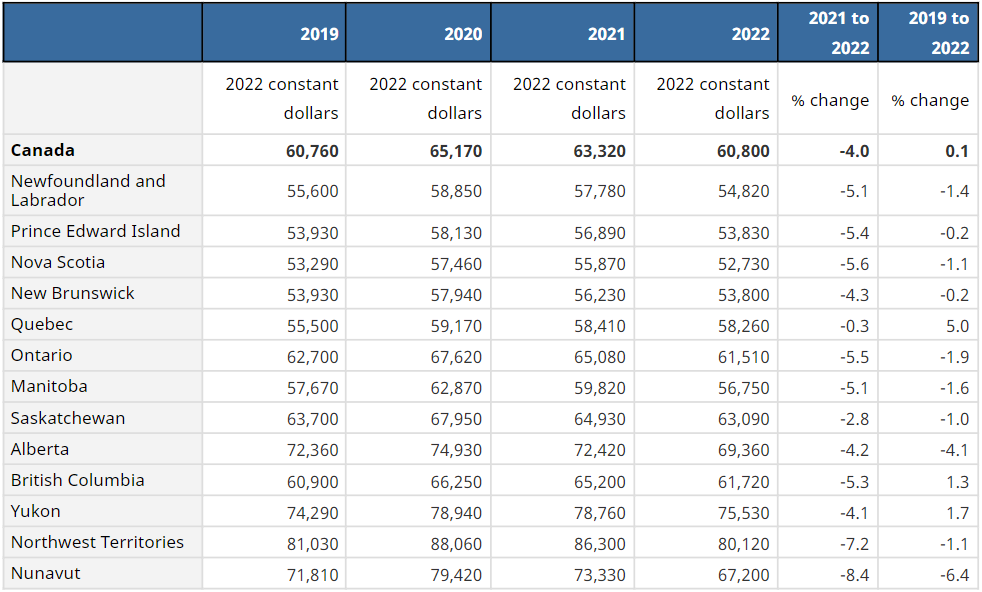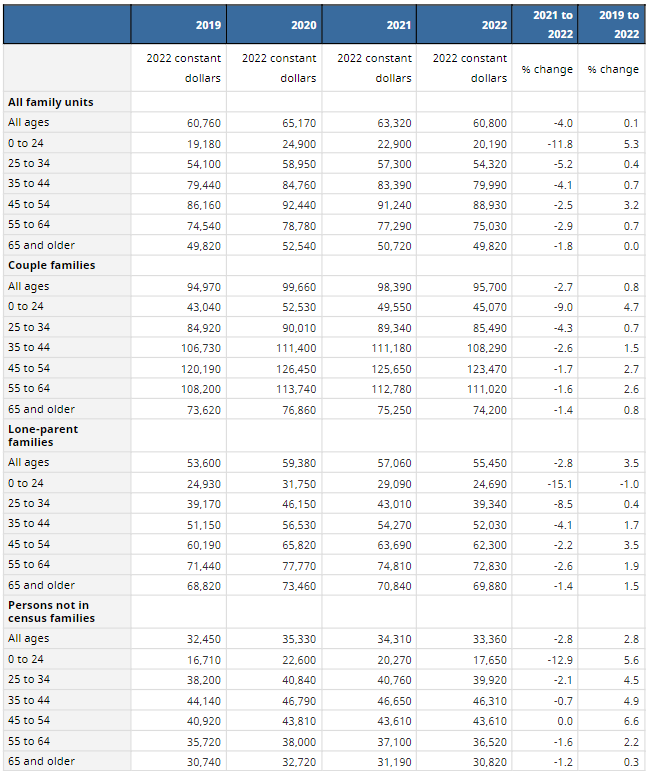
Which province recorded the biggest decrease in family income?

While many families suffered financially during the worst of the COVID-19 pandemic, the easing of some restrictions in the year 2022 did not help with their money problem, says Statistics Canada (StatCan).
In 2022, the median family after-tax income of Canadians was $60,800, up by 2.5% from 2021, before adjusting for inflation. However, when adjusted for an annual rate of inflation of 6.8%, the 2022 median family after-tax income was 4.0% lower than in 2021.
All provinces and territories reported a year-over-year decrease in their median inflation-adjusted family after-tax income in 2022. The largest decreases were seen in Nunavut (-8.4%), the Northwest Territories (-7.2%) and Nova Scotia (-5.6%).
Comparing the 2022 data with data from 2019 shows that the median family after-tax income of Canadians increased by just 0.1%. Only the provinces of Quebec (5.0%), Yukon (1.7%) and British Columbia (1.3%) recorded increases during that span.
Meanwhile, the biggest decrease was in Nunavut (-6.4%) once more.

Source: Statistics Canada (StatCan)
Overall, 45% of Canadians report that rising prices are greatly affecting their ability to meet day-to-day expenses, 12 percentage points higher than two years earlier (33%), according to another StatCan report.
Across family types, the younger families seem to be affected by the decrease in family incomes the most, according to StatCan.
The families of 0- to 24-year-olds recorded the biggest drops among all family units (-11.8%), couple families (-9.0%), lone-parent families (-15.1%), and persons not in census families (-12.9%).
The families of those aged 65 or older, across nearly all family types, seem to have been impacted by the family income decreases the least.

Source: Statistics Canada (StatCan)
“Among all family groups, lone-parent families in which the parent was younger than 25 years of age recorded the largest decrease in median family after-tax income, falling 15.1% from 2021 to $24,690 in 2022. The next-largest decrease was among persons not in census families aged younger than 25 years, decreasing 12.9% to $17,650 in 2022, the lowest median income of all family groups. Couple families aged younger than 25 years had the third-largest decrease (-9.0% to $45,070 in 2022),” said StatCan.
“In contrast, senior families (in which the oldest adult was aged 65 years and older) were among the least impacted by changes in inflation-adjusted income. In fact, the median after-tax income for all senior families decreased by 1.8% from 2021 to $49,820 in 2022.”
A previous report noted that the labour shortage in Canada is over, and it will impact the wage growth rates of Canadian workers in the future.
And half of Canadians have nothing saved up for retirement, according to a previous report.